$30-50 Million options would delay Bus Garage replacement
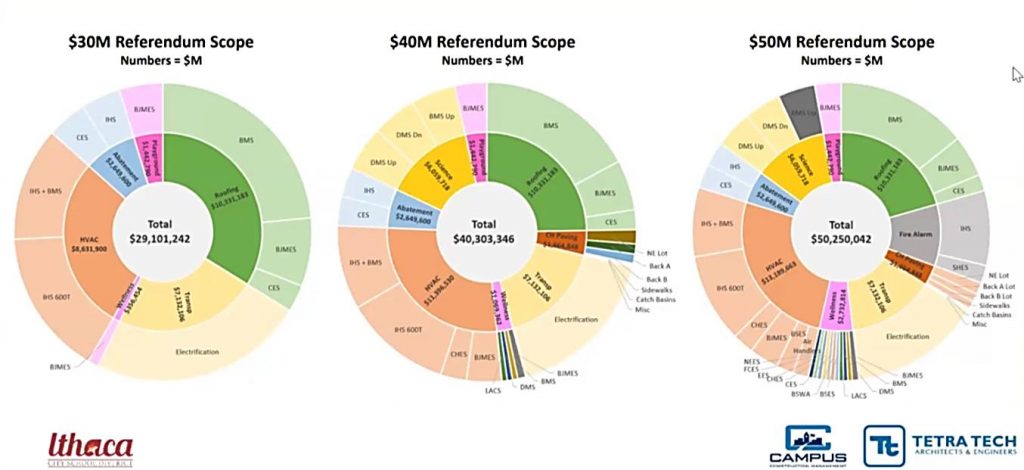
Reporting and Analysis by Robert Lynch; December 14, 2024
The Ithaca Board of Education appears to have learned a lesson: Frugality matters to voters. So does taking things in smaller bites.
Stung badly by last spring’s rejection of a largest-ever $125 Million package of capital improvements, the School Board last Tuesday regrouped on capital spending and gravitated toward asking Ithaca voters to approve a financial package far more modest, between just $30 Million and $50 Million Dollars.
Noticeably absent from any of the three capital options put on the table is the full replacement of the ICSD Transportation Facility on Bostwick Road, a key component of last May’s rejected capital cornucopia.
While the dollar amount likely to be asked from voters would be substantially less, so would the time frame of any capital package. Board member Jill Trip suggested a new, smaller bonding issue’s timeline would be as short as two to three years, not the half-decade or longer forecast for the $125 Million plan.
“I have been privy to these discussions, and I think our general consensus has been that what we would like to suggest to the Board is a relatively small capital project this year perhaps that would be voted upon at some time other than the school board election time,” Tripp, a point person in ICSD budget matters, informed the meeting.
“At this point in time, nothing has been determined,” Board President Dr. Sean Eversley Bradwell stressed as he drew the Board’s six attending members into a 45-minute discussion that left most key decisions for a later date.
Eversley Bradwell reduced matters to three questions: Should we put another capital package before Ithaca’s voters? And if so, when should we do it? And how much spending should we seek?
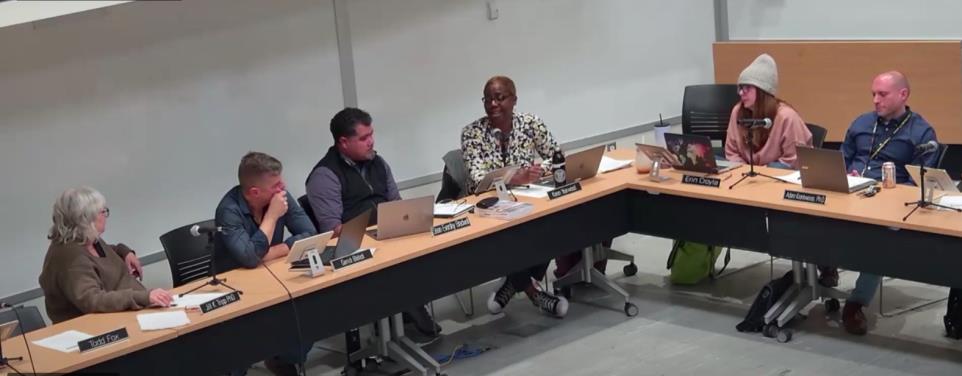
About the only consensus he found that night was that the Board should advance some sort of capital plan. On a referendum’s timing, members were split. A plurality—though not necessarily a majority—preferred keeping a capital referendum separate from the May annual budget and board member elections. The Board never reached a dollar figure that night in any meaningful way.
“Currently we’re looking at between a 30 and 40 Million Dollar proposal for this capital project,” Tripp forecast. Hers was conjecture.
Because just as last school year’s ill-fated $125 Million capital package started small, but kept on growing, this year’s may do so as well. Apparently, it already has. A trio of pie charts shared that evening by the ICSD’s consultant, Tetra Tech, showed a 50 Million option as one of three for consideration.
And a couple of Board members made no secret of their desire to think of needs above economies.
“I get that no one wants more taxes,” Erin Croyle
acknowledged, “but not having a robust capital project from everything I’ve
learned as a school board member is fiscally irresponsible.”
Croyle pointed out that comments earlier in the meeting had
suggested—perhaps misleadingly—that the school district lacked funds to re-do
the playground at Beverly J. Martin Elementary School.
“Well, playgrounds are really important to learning and to our students and for teachers and schools and communities,” Croyle pleaded. “So I’m concerned we’re saving money, but what is that going to cost us in the long run?” Croyle asked.
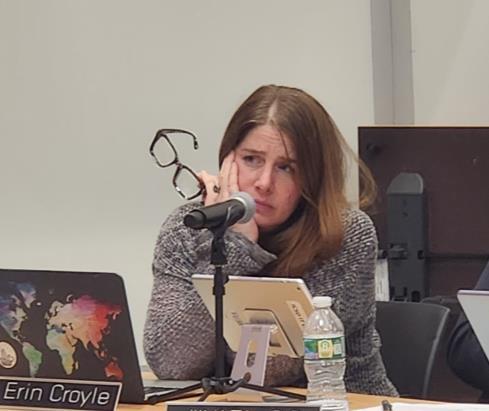
“So I supported $125 Million seven months ago,” colleague Garrick Blalock reminded everyone. “Now I’m asking do I support 30 or 40 or 50 now. Well, I supported 125, and I still support 125, and I think in the interest of our students and in the interest of taxpayers to do this,” Blalock asserted. “This is just a credit limit, not an expense. The expenses are all decided individually one by one.”
Technically, Blalock is correct. A capital bonding referendum only authorizes maximum expenditures. But in practice governments and school boards seldom resist the temptation to spend every dollar that voters allow them to spend.
Moreover, there’s a “boiling the frog” mentality to these sorts of things. School districts spend a little… then a little more… and pretty soon taxpayers become numbed to how much they’ve committed.
Even Jill Tripp, one of the Board’s more frugal souls, conceded her small-bite, small-dollar strategy essentially accomplishes as much.
“We’re not going for a ten-year capital project here,” Tripp stated. “We’re looking at a two or three year capital project. So we’re staying around that 10-Million-a-year,” Tripp said, referencing past capital plans approved by Ithaca’s electorate as well as the rejected decade-projected package of last spring. ”It continues our habits. It just tightens up how closely we look at them,” Tripp said.
Ithaca School District voters made it clear last May that a $125 Million capital plan was too big a pill to swallow. Although it lost by less of a margin than did the district’s first-round budget (a subsequent,, trimmed-down budget eventually passed), the capital proposal still failed by 13 percentage points, losing 3014 votes to 3919.
Gauging overall consensus at Tuesday’s meeting proved difficult in that Ithaca’s two newest Board members, Todd Fox and Emily Workman, didn’t attend. Fox was elected on a spending-skeptical, taxpayer-supportive platform. And both new members have proven reluctant to do things on the Ithaca School Board as they’ve always been done.
The Board’s ninth seat has lain vacant since summer, and will likely remain that way until next spring. It takes five votes to pass anything on the board. And with only six seated at the table Tuesday, majorities just couldn’t coalesce. No votes on capital spending were ever called, not even a straw poll.
The kinds of capital spending identified in the three pie-chart options presented the Board proved anything but sexy. Money would flow in varying amounts to things like roofs and ventilation systems and nursing suites. New electrical panels at each of two middle schools hardly catch anyone’s eye. What the drive-by observer might most notice would be a geothermal heating and cooling system proposed to serve jointly Ithaca High and Boynton Middle School campuses.
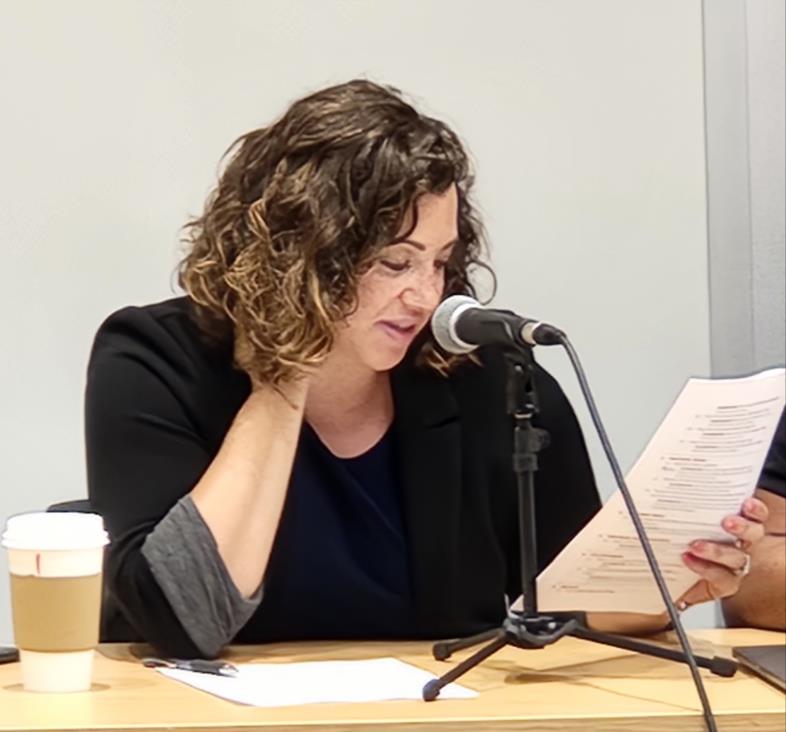
Replacement of the district’s Bostwick Road bus garage—the brick-and-mortar centerpiece to last spring’s ill-fated capital initiative—gained only glancing mention at the meeting. Garrick Blalock referenced the garage only in passing. But he implied its replacement would not come anytime soon. Member Karen Yearwood spoke of garage replacement more directly.
“We did a big disservice to our Transportation Department,” Yearwood said, “knowing how old that building is that we’re not doing any major improvements especially around the size of the staff that we have there.”
Mind you, older adults tend to vote disproportionately on election days, especially when they’re angry. To many of them, a bus garage built in 1967 is not really “old.” Maybe Karen Yearwood should have more carefully chosen her words. “Undersized” might have proven a more apt description. The Bostwick Road facility was built for a bus fleet of 26. That number’s now up to 88.
The last capital referendum pegged bus garage replacement at $40 Million. Each of the three options now under consideration would still spend upwards of $7 Million to retrofit transportation facilities to meet an expected state-mandated conversion to electric buses maybe a decade from now.
So expect another ICSD capital referendum, its total smaller than that of last spring. What’s next to decide in Sean Eversley Bradwell’s list of three decision points is when to hold the vote. There’d be no time to call upon voters before next May. If the referendum was to coincide with the May decisions on budgets and board members, consultants say the capital plan’s scope would need to be fleshed out by late March at the latest; doable, but tight.
So if budgets and capital bonds were forced to play separately, the latter would come at a later time, perhaps as late as December 2025.
“Separating them allows the public to look at the budget and look at the capital projects as separate issues,” Blalock said, “digest them separately, and I think the public will have a better understanding.”
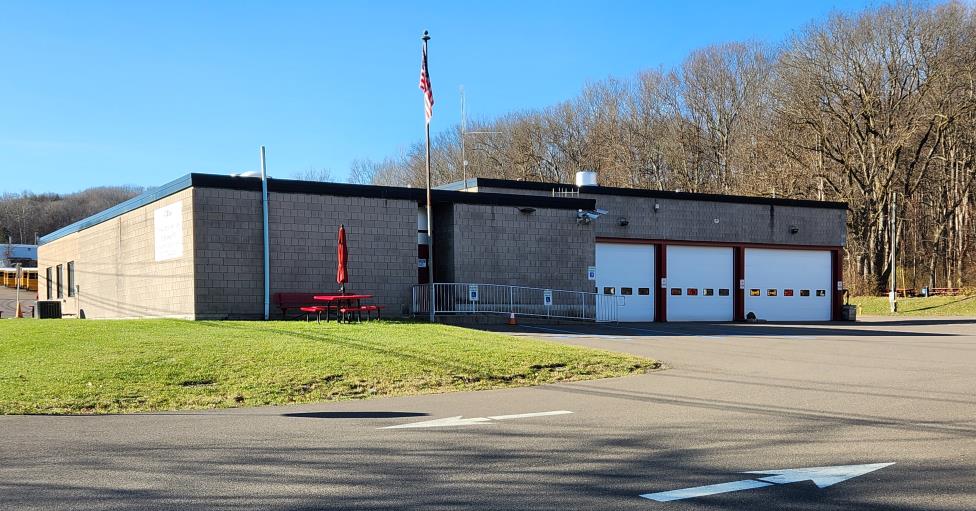
“I think delaying it a bit gives us a chance to really refine and inform people about exactly what… they would be getting for their money,” Tripp reasoned.
Yearwood said she’d favor a referendum in “like the latter part of next year.”
The Board President sensed member agreement that “going out in May may not be the best time.” He cautioned that special elections cost money; perhaps up to $35,000 depending on how many polling places the district employs.
Board member Adam Krantweiss voiced concern about a stand-alone referendum’s cost. “It troubles me a little bit,” he said. But Krantweiss conceded he could be dragged into supporting a special election if others demanded it.
But Erin Croyle does not. She insisted the referendum stay with tradition and remain in May.
“I think us as a school district asking voters to vote yet again is not okay, and it’s also an additional cost that we could work around,” Croyle stated.
Eversley Bradwell, Tripp, Yearwood, Blalock, and maybe Krantweiss, if all held together, would push to a bare majority the idea of holding any capital referendum at some date beyond next May. But any coalition thought to emerge from the December 10th meeting would be perilously fragile. Todd Fox and Emily Workman need yet to be heard.
As for the numbers and categories on the pie charts, don’t bother to memorize their specifics. It’s all too tentative right now. Past practice has demonstrated that how much is spent on what in any Ithaca City School District capital funding bundle invariably changes over time. No doubt, this one will change too.
###

